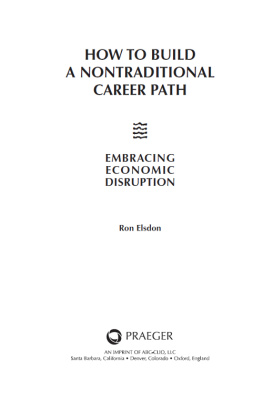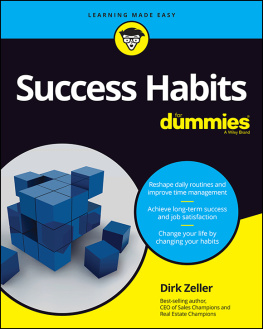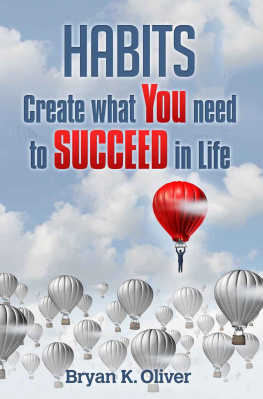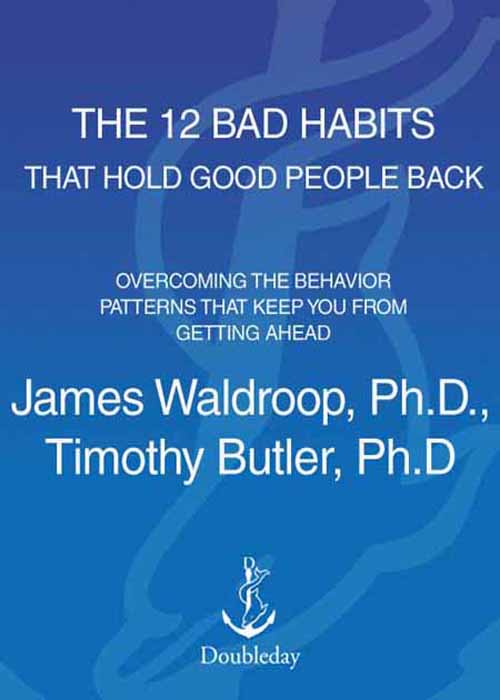
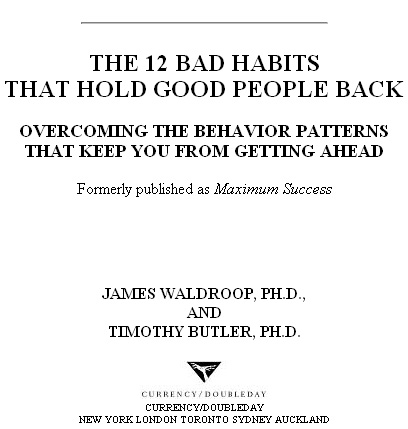
CONTENTS
FOR MY FAMILY,
VALERIE, MAX, AND DANIEL,
AND FOR MY FRIENDS
STEVE AND TIM.
J. W.
ONCE AGAIN,
FOR LINDA AND KIERA,
AND FOR MY PARENTS.
T. B.
ACKNOWLEDGMENTS
O UR FIRST THANKS go to the clients we have worked with over the years. Whatever insights are present in this work are largely born of our experience with those individuals. Certainly our clarity regarding the twelve patterns weve written about here emerged from the time we spent working with them. In a very real sense our clients were there at the beginning of this projectbefore any of us knew where it would lead.
We want to thank Roger Scholl at Currency for his vision, his faith, and his investment in the project; his enthusiasm, and his encouragement. His questions forced us to think more deeply about what we really meant at numerous points of semiobscurity. Most of all we appreciate his many hours making our words sing as well as they can. At every stage of the process his input has made this a better book.
Likewise, Lee Smiths creativity and assistance when the book was still in its most germinal stage was invaluable. Our conversations helped to clarify and deepen our thinking about the various behavior patterns, and were a pleasure as well! Truly, without him this book would not have been possible. Thanks and a tip of the Panama hat.
We are enormously grateful to Kris Dahl of International Creative Management for her encouragement in the evolution of this material from a posting on our Website to an article in Fortune to its current form. If not for her extra push to overcome our inertia, these pages would likely be blank. And thanks also to Fortunes Geoff Colvin, who was responsible for the first of those evolutionary steps.
We are indebted to our colleagues, present and past, at MBA Career Services at the Harvard Business School, as well as to a multitude of other members of the HBS community, for their support over the many years of our work at the school. And we are indebted as well to Dave LeLacheur, our partner and friend, for juggling even more balls than usual, allowing us to put our hands to our keyboards.
Thanks go to Jacqui Archer for her amazingly accurate translation of our edits (and for catching other errors along the way) and to Stephanie Land for her grace and graciousness, good humor, and for filling in our deficiencies with her organizational ability.
Finally, thanks to our families for their encouragement, understanding, and love; and thanks especially to our wives, Valerie and Linda, for their loving support. They, too, kept more balls in the air while we talked, typed, then talked and typed some more. Without them we would not be who, or where, we are today. Thanks and all our love to Danny, Max, and Valerie, and to Kiera and Linda.
INTRODUCTION
J ACK HAD EVERYTHING going for him. He was highly intelligent, well educated (with a top school MBA and a masters degree in biological sciences from MIT), articulate, attractive, polished, and knowledgeable in the field of biotechnology. He was happily married with two young sons and a lovely home. At age thirty-three he was the head of a small but promising and growing biotech firm, was earning a high salary, and held stock that was likely to be worth several million dollars when the company went public. In short, Jack hador was on the way to gettingit all.
Then he began to make a series of baffling management and political mistakes. They were the kinds of errors you might expect from someone in his first job out of college or in his first management positionnot from someone with the amount of training, experience, and business savvy that Jack had. He took control away from people on projects in which they had invested a great deal of time, energy, and emotion (nitpicking on which exact shade of red should be used on a sales brochure, for example). He made arbitrary decisions (such as assigning new office spaces to people without their input) that, while not bad choices per se, were tremendously annoying to other people in the firm just because of their arbitrariness. He made statements and decisions (such as declining to hire the niece of a board member for a summer internship) that needlessly offended important investors in the company. The result was that Jack went into a tailspin from which he couldnt recover, and ultimately he was forced to resign from his position.
Suzanne was an excellent salesperson, regularly exceeding her sales targets, winning awards, and outselling the competition even when they had arguably superior products. She loved her work, and to a great extent her work was her lifepossibly too much so. And she was a superstar when it came to selling (someone who could talk a dog off a meat truck, as one of her Texas-based customers put it).
Some fourteen years into her career (all spent with the same employer) things started to go wrong for Suzanne. Certain bad habitsexpressing her annoyance at company policies too vocally and too often and being overly self-disclosingthat she had had for many years began to show themselves to a much greater degree than ever before. When a new contact tracking system was installed, allowing both managers and other salespeople to easily view critical information via the Internet, Suzanne complained bitterly to her manager, to his manager, all the way up to the vice president for worldwide sales. She talked too openly, too loudly, and too often about her personal life (whom she was dating, how it was going, where she was considering moving, and how much it was going to cost her); and about her personal feelings about other people (I love your tie, I hate your tie, That skirt and blouse dont go together, The car you just bought has lots of problems, You really should stop smoking, and so on). Warnings from management only made matters worse, further infuriating her. After a protracted and bitter struggle she left the company, ostensibly voluntarily but in fact having been managed out.
ABOUT OUR WORK
Why do talented people fail? And why do talented people fail to be as good (as successful and effective) as they could be? These are questions we have grappled with for many years. As business psychologists and as directors of the Harvard Business School MBA Career Development Program, weve worked with thousands of professionals and students over the years in helping them to choose the right careers and to make their way down the paths they have chosen without falling along the wayor at least with as few slips as possible. Moreover, as consultants and coaches, we are brought in by many Fortune 500 companies to work with highly valued employees who are failingemployees and managers on the verge of being firedas well as with those who are high benefit but high maintenance. These are the people who are sometimes described as 95 percent brilliant, a superstarbut 5 percent disaster, someone I spend a huge amount of time taking care of. We are also called on to work with people who are succeeding in their positions but who clearly could be more effective in those positionsand who may need to make that step in order to be promoted. And we work with people who are being groomed for positions at the very highest levels and need to go from grade A minus to A plus.
Our charge in all of these cases is to help the people we are working with become more effective. We do not promise to make them more right (that is to say, smarter); if we could do that, we would have already received patents on the procedure (and our Nobel Prizes). As we say to the executives who hire us, Lets hope Laura is smart and making good business decisions, because if we succeed in this coaching process and she makes bad decisions, theyll be even
Next page

